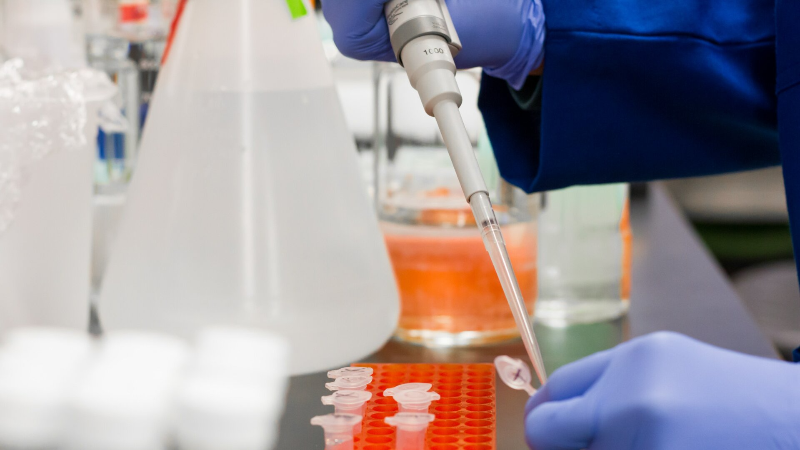What are Chemical Sciences?
Chemistry is the study of the structure, composition, and properties of matter, elements, and compounds. The documentation, research, and knowledge of the structures, properties, and composition of various substances that result from chemical reaction or bonding are known as Chemical Science.
Chemists investigate the properties of matter at the level of atoms and molecules. They measure reaction rates and proportions to understand substances and how they behave or to create new compounds for use in practical applications.
Chemistry is a creative and central science, dealing with challenges that span the physical and life sciences. It is found and used everywhere from the creation of new materials and processes to advancements in medical health and diagnosis of disease.
What 3rd level courses are available?
Universities and colleges in Ireland are offering Chemical Sciences courses in the following subject areas:
- CK 406 Chemical Sciences – The study of the properties and behavior of all matter.
- CK 402 Biological and Chemical Sciences – An inter-disciplinary approach across biological, biotechnology, medical, chemical, pharmaceutical, and ecological research areas.
- BSc Chemical Sciences – Gain an understanding of molecules and how they react together.
- Diploma in Basic Chemistry – The study of the basics of chemistry and the environment around us.
- Applied Science: Analytical Chemistry – Gain an understanding of modern analytical instrumental techniques, chemometrics, and advanced research projects.
- Biomedical Science: Clinical Chemistry – The study of the methods of Clinical Chemistry and Biomedical Science.
Studying Chemical Sciences in college
Many full-time Chemical Sciences courses usually take anywhere from 1 to 4 years to complete depending on the course and modules selected. There are also part-time courses and night courses available so you can be sure to fit in your studies no matter what your schedule is like.
Courses will cover all theory work through lectures, assignments, tutorials, and taught modules. Laboratory practical sessions, career service workshops, industry-based seminars/workshops, site visits to industry and research projects are also common in Chemical Science courses.
Assessments will take place continuously with written examinations and practical assignments combined to achieve a qualification.
You could also consider work experience or work shadowing in laboratories or other research and science facilities to gain real-world experience. Work Experience will not only allow you to obtain a deeper knowledge and understanding of the industry, but it will also give you a chance to do some essential networking with other industry professionals to gain valuable contacts for the future.
Volunteering is another way of enhancing your CV. Although you may not find many opportunities that directly relate to your chemistry degree, many schemes focus on related areas such as the environment, sustainability, ethics, and medicine. There may also be opportunities at your local hospital to work in a pathology lab.
Career options
After completing a course in Chemical Sciences you will be able to get started in a career that uses specific knowledge of a range of research sectors, including roles within chemical engineering, chemical, and related industries, healthcare, and more.
Research careers are more diverse than they might first appear, as there are many different reasons to conduct research and many possible environments. You could be based in a university, combining research with teaching; in a pharmaceutical company, working on developing and trialing new drugs; or in a public-sector research center, helping to ensure national healthcare provision keeps pace with discoveries.
While the job of a research scientist varies, most chemistry careers in research are based in laboratories, where research is conducted by teams following scientific methods and standards.
Working hours will depend on whether you are employed by a company with set business hours or if you are working on a specific contract for research or with time-sensitive projects.
Related jobs include:
- Chemical technician
- Toxicologist
- Chemistry teacher
- Water chemist
- Analytical chemist
- Synthetic chemist
- Quality control chemist
- Organic chemist
- Academic researcher
- Biotechnologist
- Chemical engineer
- Clinical scientist
- Forensic scientist
- Nanotechnologist
- Pharmacologist
- Research scientist
- Scientific laboratory technician
Further study
After completing a course in Chemical Sciences you may choose to pursue further study in a specialist field to increase your knowledge base and skillset. Postgraduate study can also be used as a means to change career focus or to gain professional qualifications required to practice in certain career areas such as Engineering and Healthcare.
FAQ
Are there any particular qualities you need to study Chemical Sciences?
As well as practical knowledge of the subject, chemistry students will find critical thinking, problem-solving, communication, and creativity skills to be very useful in this field.
What are the 5 major areas of Chemistry and Chemical Sciences?
There are 5 major areas that Chemistry is a subject that can be broken down into Organic Chemistry, Analytical Chemistry, Physical Chemistry, Inorganic Chemistry, and Biochemistry.
Is Chemistry fun to learn?
Our world is made out of atoms, molecules, and ions and Chemistry lets us learn about the properties and behaviors of the substances we encounter every day in our daily lives which makes it a very fun and engaging topic that we can see happening around us.
Where can I study Chemical Sciences?
Explore your options here
Did You Know?
- Fire typically spreads uphill more quickly than downhill? This is because temperature affects the rate of combustion. The region above a fire tends to be much hotter than the area below it, plus it may have a better supply of fresh air.
- Frogs don’t need to drink water since they can absorb it through their skin? Humans, on the other hand, have waterproofing proteins in their skin to help prevent water loss.
- The hardest chemical in your body is your tooth enamel.
- Unlike many substances, water expands as it freezes. An ice cube takes up about 9% more volume than the water used to make it.
- The human body contains enough carbon to provide enough graphite for 9,000 pencils.












Comments